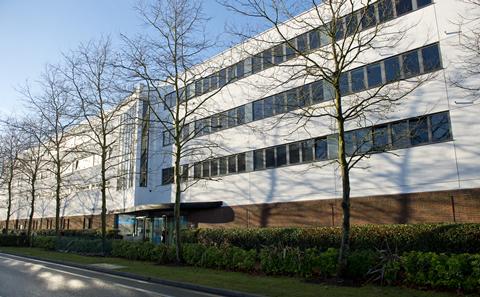You will complete a rigorous programme of required modules in applied health care research, along with another module of your choice.
Finally you will submit an original piece of research for your doctoral thesis. This will evidence sophisticated analysis and research-based conclusions.
Our individually tailored Integrated PhD in Clinical and Health Research focuses on developing highly skilled research-led innovators in healthcare.
The programme can be taken either full- or part-time. The minimum time for completion of the programme will be 4 years (full-time) and 7 years (part-time). The maximum time will be 5 years (full-time) and 8 years (part-time). There will be one cohort per year, commencing in October.
Part 1 of the programme (Year 1 full-time, Years 1-2 part-time) focuses on research training modules.
When you have successfully completed Part 1, you will be eligible for an intermediate award of MRes Clinical & Health Research.
Part 2 of the programme (Years 2-4 full-time, Years 3-7 part-time) integrates professional and transferable skills training with the process of research and thesis preparation.
Modules contributing to Part 1 are:
1. HLTH6177 Designing and Conducting Clinical Research (10 ECTS)
2. HLTH6110 Applied Qualitative Research Methods (10 ECTS)
3. HLTH6111 Applied Quantitative Research Methods (10 ECTS)
4. HLTH6114 Clinical Research in Practice (10 ECTS)
5. HLTH6116 Developing Research Skills (10 ECTS)
6. One choice of required module (10 ECTS) taken from the FoHS portfolio of M-level modules†
7. HLTH8012 Research Dissertation (30 ECTS)
The Research Dissertation module is offered at Level 8 and completion of this module will entitle you to the intermediate award of MRes in Clinical & Health Research. While undertaking this module, you will be supported by an action learning group (ALG), facilitated by an experienced member of academic staff, together with other members of your cohort. The purpose of the ALG will be to rehearse with you and critically reflect upon key research skills and values, and to formatively address the process of developing and implementing a small piece of original research. This piece of research will act as a bridge to your doctoral research project by giving you the opportunity to develop methodological expertise and the skills of a researcher in the field, and by, for example generating a key dataset, piloting techniques, or assessing feasibility relevant to future work.
Recognition of prior learning (RPL) may be granted up to a maximum of one third of a Masters programme (30 ECTS).
The following credit structure of 270 ECTS credit points is set out in the University guidance on Integrated PhD programmes:
• 60 ECTS credit points may be undertaken at FHEQ Level 7 during Year 1 (full-time) or Years 1-2 (part-time);
• 30 ECTS credit points must be undertaken at FHEQ Level 8 by the end of Year 3;
• 180 ECTS credit points are notionally allocated to thesis preparation at FHEQ Level 8.
Progression from Year 1 to Year 2 (full-time) or Year 2 to Year 3 (part-time) is dependent on passing all Level 7 modules (60 ECTS credit points) and completion of the level 8 Research Dissertation module (30 ECTS credit points).
Professional and transferrable skills are a key part of the required modules. We will support you to consider the advantages of developing professional and transferrable skills when choosing your additional module.
In addition, the Faculty through its seminars, workshops, and postgraduate forums, and Researcher Development and Training Centre through Gradbook, offers a wide range of further opportunities for experience and learning in the use of communication and information technology, writing for academic purposes, presentation skills for researchers, and teaching in higher education.
